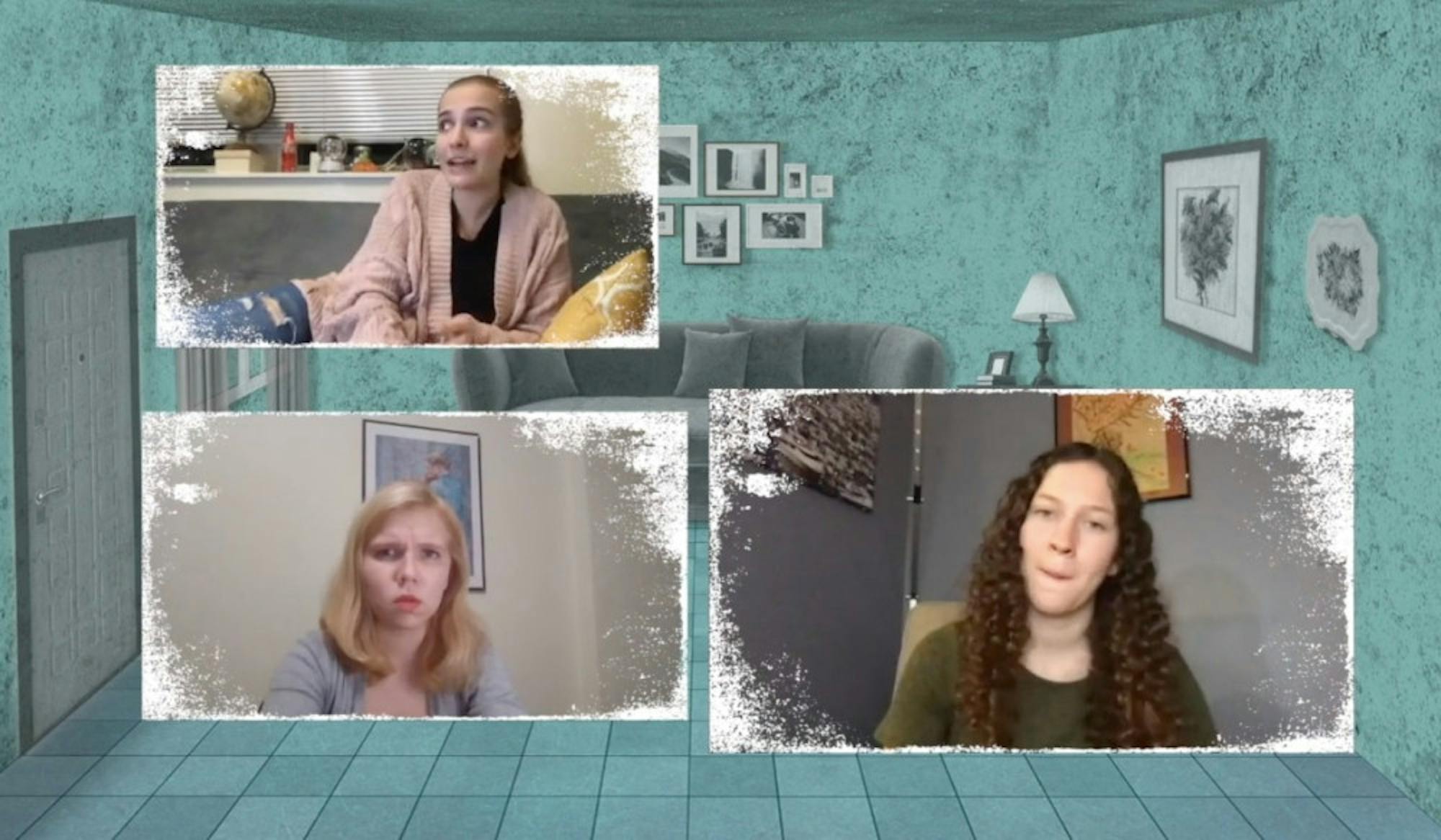The students and faculty of Theater Emory, the University’s professional theater company, have particularly struggled to recreate the collaborative environment quintessential to live theater in a virtual environment. Both actors and directors were disheartened by yet understanding of the University’s restrictions.
“We’re super disappointed, but in the back of our minds, we know that it’s the right thing — safety-wise,” said Carly Colen (23C), who plays the father in Theater Emory’s latest play, “The White Plague.”
Managing Director of Theater Emory Rosalind Staib outlined working on set together to create a physical masterpiece as a key aspect of live theater, and asserted her disappointment at not having the ability to provide that for her students.
“We, as theater people, are very collaborative,” Staib said. “It’s disappointing to not be able to give tech and design students the opportunity to get in the space, work with their hands and build things. But when it comes down to it, there’s just not enough physical space to do that in a safe way.”
Theater Emory recently produced a virtual adaption of “The White Plague” by Karel Čapek, which details the rise of fascism and xenophobia in a fictional country based on Nazi Germany. Pre-recorded and live-streamed through Streamyard, actors worked over Zoom to rehearse scenes and communicate with directors and professional artists.

“It was mostly designers working in consultation with the actors,” Staib said. “‘What do you have access to wherever you’re living? Can we come up with someplace nearby that would work for this world we’re trying to portray?’ It’s a lot of different considerations, but the purpose is similar to what we’d try to achieve in person, just the materials are different.”
After each time the play is streamed, select groups performed live, primarily consisting of a short skit sketched by content creators centered around a theme in the play.
“In our live elements, we had a piece on voting and how to be civically engaged,” Colen said. “That was my favorite part.”
For some students, the skits were the highlight of the live performances. “They handled the darker topics and made them a little light-hearted so they were easy to follow,” Madison Yates (24C) said.
For their next production, “Les Blancs,” Theater Emory is hosting multiple interviews with professional artists to share the creative process of assembling a show and give advice to budding designers. Their latest interview featured sound designer Melanie Chen Cole, set designer Czerton Lim and student lighting design assistant Sam Cohen (24C).
Students also highlighted physical and artistic difficulties introduced by a virtual format and limited resources.
“The hardest thing from an acting standpoint is that we’re used to being able to play off of people,” Colen said. “They’re right next to us and we go off of each others’ energy, but going off of someone on a screen in front of you is way more difficult.”
Hannah Chang (22Ox) noted that while she struggled to feel connected to the theater community, she had many opportunities to build individual connections because of the camaraderie in student theater organizations.
“As different as it was, it was a good indicator of community in general,” Chang said. “We still became friends and rehearsals were weird, but it just helped me realize that I really enjoy it and I wouldn’t mind another Zoom performance, but I’m really excited for when it goes back in person.”
Staib pointed out that community stands as a crucial component of theater, stating, “We recognize that a lot of the reasons why students tend to get involved in theater is for that community aspect.”
While challenging, the ability to virtually work with fellow actors and put on a performance in any capacity excited students.
“There’s a sadness, because when you’re performing live, you feed off of the audience,” said Gracie Fraser (24C). “It’s super hard if you can’t see the audience, because at least 40-50% of the show is the audience being there. But it’s also good to be there and to present something live, even if it’s not ideal.”
First-year students are looking forward to their first time experiencing an in-person collegiate theater program.
“As tedious as the rehearsals were, they connected us really well and walking around Tarbutton and seeing the Theater Emory social media page, I’m really excited to be engaged in a normal theater program,” Chang said.
Fraser commented on the benefits Theater Emory might see when students are back in person thanks to time spent apart from one another.
“The virtualness is going to create a lot of appreciation for being able to be together. People will want to come back to theater in a way we’ve never had before, because we’re realizing that theater is a privilege,” Fraser said. “It’s also going to be a more inclusive place, especially with the Black Lives Matter movement, we’re learning that art and theater will follow you everywhere, and theater’s always going to reflect the social situation.”
Overall, theater students and faculty remain optimistic about the future of the department.
“There is a lot of sadness and frustration, but there is also hope that we can get through this and it will get better,” Fraser said. “Theater will come back. Science will win and art will prevail.”




